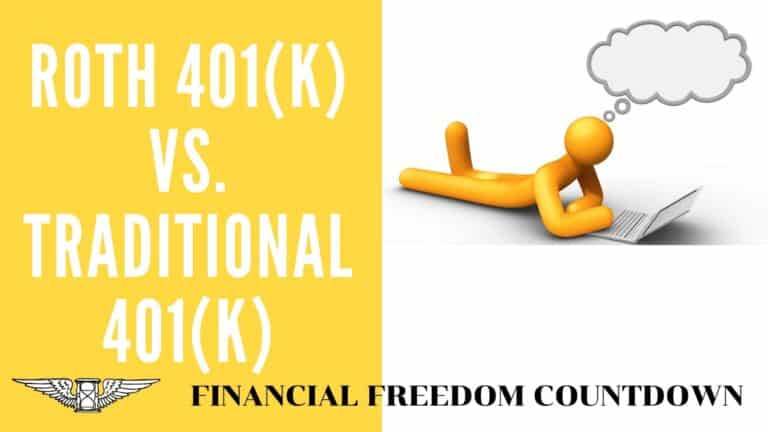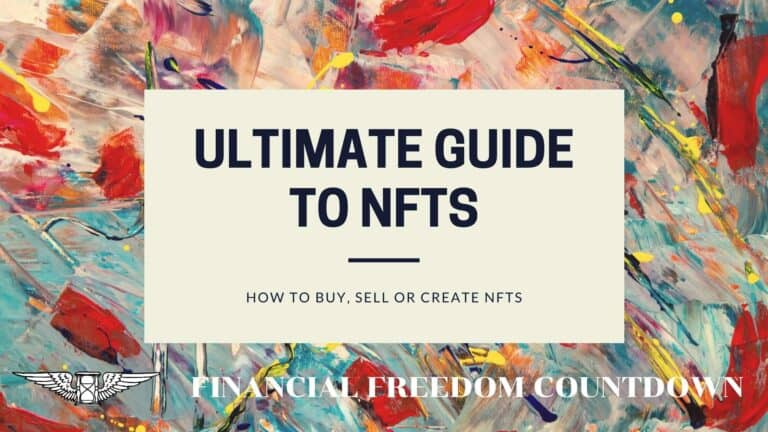Compound Interest
Do you want to make your money work for you? If so, then you need to learn about compound interest. Compound interest is one of the most powerful tools available to investors. It can help you grow your money faster than you ever thought possible!
There is a classic Albert Einstein quote: “Compound interest is the eighth wonder of the world. He who understands it earns it … he who doesn’t … pays it.”
To a large extent, Einstein is correct: Compounding interest is an amazing principle. The idea behind it is one that can encourage you to save more because doing so allows you to earn more, which allows you to save more, thus creating a positive cycle that can ultimately dramatically increase the amount of money you have.
Today we will discuss what compound interest is and why it is so important. We will also provide tips on how you can start using it to grow your own wealth!
What Is Compound Interest?
Compound interest is the interest calculated on both the initial principal and the accumulated interest from previous periods.
The interest will be added to your total amount of money and you will then earn money on your initial investment and all of the additional interest you have earned. Earning interest on interest is the secret sauce of compounding and is the main factor distinguinging compound interest from simple interest.
With Simple Interest you do not earn interest on the interest you earned in the prior periods.
How Compound Interest Works
The basic idea of compounding interest is to earn more money by allowing interest to accumulate. This happens because continuous compounding allows you to earn more and more money in accrued interest.
Consider the compound interest formula: A = P(1 + r/n) ^ nt
In this compound interest formula, the above letters and numbers stand for the following:
- A = Accrued amount (principal + interest)
- P = Principal amount (initial balance)
- r = Annual nominal interest rate
- n = number of compounding periods per unit of time
- t = time in years
- I = Interest amount
You can calculate compound interest using the above formula. However, as you can tell, you need to have some of the above information to accurately calculate compound interest.
Fortunately, there are many calculators online that can allow you to calculate how much interest you can earn over a set period. You can also use these calculators to determine how much more (or less) money you would make under certain scenarios, like if you alter the interest rate or the total amount of time you hold your money. These calculators can be highly useful for financial planning and comparison purposes.
As you can see from this formula, you can earn more compounded interest by increasing the amount you put into your savings accounts, increasing the interest rate, or letting your interest rate sit for as long as possible. Since interest compounds monthly, you should be able to increase the total compound interest you earn on a monthly basis.
Compound Interest Terms
Compound interest may sound complicated, but the truth is that you can get the hang of it once you understand some basic terms. These terms include the following:
- Annual Interest rate: Interest rates are offered by banks or credit unions to entice you to leave your money in those locations. These banks pay interest to get your money, which they then invest and profit on. They pass some of these returns back to you. Interest rates will vary, but with the federal reserve raising interest rates to combat inflation, the inflation rates offered by banks are finally starting to rise. For example, let’s say you leave your money in a bank with a 2% interest rate. You have $1,000 to start in the account and add $100 monthly. At that rate, you’d earn $30.96 in interest over the year. After two years, if nothing else changed, you’d earn another $55.98, totaling $86.54 in contributions over that period. Your interest earned over the second year would increase because you’d have more money in your bank account directly from the additional contributions and interest earned.
- Accumulated interest: This is the amount of money your interest would have earned you. Accumulated interest shows how much money you got on your investments by merely making these investments. This interest can also help you earn more compound interest by increasing the amount of money on which your interest was calculated. In the example above, the accumulated interest was $86.54 after two years.
- Annual percentage yield: Annual percentage yield (otherwise known as APY) is the rate of return you earn on your investment. However, the APY takes into account compounding interest. As such, it can be viewed as an excellent way of determining how much you make on an investment, particularly when you consider compound interest.
How can I earn compounding interest?
You can earn compound interest in many ways with income-producing assets.
Most people most likely earn compounding interest by leaving their money in some sort of savings account. You can earn more compounding interest by increasing the amount of money you put into a savings account or by finding a bank that pays a high interest rate. Furthermore, you will want to leave as much interest alone as possible. Leaving this money alone means not making any withdrawals from the bank account. By allowing the money to sit and accumulate, you can ultimately increase the value of your investments.
You can also earn compound interest on other investment vehicles. For example, Certificates of Deposit allow you to earn money. When you place money into a CD, you know you will earn a certain interest over a specific time. Generally speaking, the interest you earn on a CD will be higher than the interest you earn in a checking account. This interest is higher because when the CD matures, you get your principal back and interest. However, you often have another option: Rolling that CD – and the interest generated – into another CD. Doing so allows you to compound the principle of that investment and the interest you’ve earned.
If you want to increase the compound interest you earn, you’ll have to do more than just place it in a lump sum in a bank and let it sit there. Instead, you’ll want to ensure you are actively monitoring your investments and moving them to an investment vehicle that allows you to earn the most compound interest possible.
Can compound interest work against me?
Absolutely!
When you are trying to understand how compound interest works, remember that you can pay a solid amount in the wrong direction, too.
Say you borrow money from a bank. That bank then uses compounding interest for you as you pay off your debt. Indeed, from a bank’s perspective, the dream scenario is that you take as much time to repay money as possible.
By taking your time, the bank can generate more interest on their investment (aka their loan to you). If you take time to pay off borrowed money, you may pay much more than the initial principal would allow.
In this sense, compound interest makes you poor and makes banks rich. Thankfully, by paying off debt faster, you can save yourself money and keep as much of your limited funding in your hands as possible.
Credit cards are notorious for charging high levels of compound interest. One of the many reason not to sign up for credit cards unless you can payoff your entire balance in full every month. Paying only the minimum amount due on credit cards will ensure that compound interest works against you.
Credit card companies will often encourage you to pay only your minimum monthly payment. Doing so can keep the amount of money you actually pay low. This may allow you to get through a financial emergency or spend more money. However, remember how compounding interest works: The debt you owe the credit card company is compounded monthly. So if you don’t pay off your entire balance more than a month at a time, your debt earns more interest for the credit card company. That’s because this interest adds to your total debt, which is compounded. This can trap you in a cycle of debt.
In the case of credit card companies, this can get even worse: Interest is calculated by many factors, including your potential risk. If you have too high of a balance for too long of a period, credit bureaus may decide you are a greater risk and reduce your excellent credit scores.
What is the credit card companies’ remedy to offset this risk? You guessed it: They will change how interest is calculated and make you pay higher levels of interest. And, as you now know, this means that your debt will get compounded, creating an even more vicious cycle of debt that can be next to impossible to ultimately escape from.
Now that you understand how credit card companies and loans use compounding interest against you, the best way to escape this debt: Pay your bills on time and pay them in full.
While your debt earns interest, it almost always takes at least a full billing cycle before that interest is calculated against you. By paying off your debt immediately, you can avoid more frequent compounding. This enables you to avoid interest payments and keeps you debt free.
If you have credit card debt, look into consolidating debt and paying it off using platforms like Credible.
How can I take better advantage of compound interest?
The reason Einstein called compounding the interest the “8th wonder of the world” should now be apparent: Compounding interest can make it easy for you to increase your bottom line and the money you make from bank deposits or investments. Thankfully, you can also use a slew of techniques to increase the amount of interest you compound. This includes:
Start investing as early as possible
Remember, time is one of the most important factors for generating compound interest. If you start investing early, you can make even more money on your compound interest. This additional time will allow you to generate more profits whenever you stop investing your money and use it.
Shop for higher interest rates
You should have a savings account with your bank that allows you to make interest on your savings. However, thanks to the internet, you can no longer only work with local banks. Banks throughout the country offer a range of high-interest savings accounts or rewards checking accounts. You can check out several websites to find bank accounts with high interest levels.
Make regular deposits
There is no question that you can increase your bottom line with compounding interest. However, this doesn’t mean you should “set it and forget it.” The best way to make more money with compounding interest is to add to the principal of your investments. Making regular deposits allows more money to be compounded. Even small regular deposits can dramatically enhance your total investment gains.
Leave investments alone for as long as possible
Making regular deposits can grow your bottom line, but removing money from the account can ultimately damage the amount of money you make. If at all possible, don’t touch the principal investment. When it comes to compounding interest, this can be a bit like “eating the seed corn,” It can damage the amount of money you generate in the long term.
Find accounts that frequently calculate compounding interest
Most accounts will calculate compounding interest monthly. However, some accounts will do so more often, potentially on a weekly (or even daily) basis. More frequent compounding means more money in your wallet.
Monitor for changes
Compound interest changes can seem like a passive investment strategy. To a large extent, this is true – when it comes to compound interest, you can just invest money and watch it grow. That being said, you must remember that interest doesn’t always just grow automatically. You have to keep an eye on your investments and make sure that your interest rate stays the same because it won’t always do so. If your interest rate is shifting, you may want to consider moving your money to an account with better interest rates or reduced fees.
Fees
Some banks or investment vehicles will charge you fees. You need to ensure that these fees are as low as possible. Remember, even a small fee can take a decent bite out of any interest you generate, thus minimizing the impact of compounded interest over the long term.
Compound Interest Investments
As noted above, savings and other interest-bearing accounts aren’t the only way that you can earn compound interest. Investing in stocks is another excellent opportunity to make more money with your investments.
Stocks or other investment tools pay dividends. They are a small share of profits that are returned to stockholders. In most cases, dividends are paid quarterly. You then have multiple options with the dividends: You can take them and spend them or reinvest them.
Here’s the thing: Reinvesting dividends works a lot like compound interest. For example, let’s say you own a stock of ABC Company. It’s $100 a share and a 5% dividend. A dividend rate of 5% on a stock of $100 would generate a $5 quarterly dividend. You can then use that money to invest your investment. You can do this by investing in the same stocks or something else.
Many stocks and funds have what are known as Dividend Reinvestment Plans or DRIP. It allows you to reinvest the dividends you generate and automatically reinvest them in stock. This can be done even if the dividend you get is only enough to buy a fractional share of the stock. DRIPs are automatic, so you don’t have to worry about thinking about investing: They are essentially just a “set it and forget it” method of investment. Additionally, DRIPs often come with many benefits, including reduced fees. You can then use a DRIP to reinvest your dividend and save on expenses.
Alternatively you could opt to buy an index of dividend paying stocks such as the dividend aristocrats.
Investing in real estate is another option for compound interest. Directly owning a rental property, crowdfunded investments or REITs are some of the options
Alternative investments can also be great compound interest investments. However, alternative investments are risky and only suitable for individuals meeting the accredited investor status.
One of the biggest drawbacks of compound interest investments is that they are not suitable for investments that pay monthly income. When you withdraw the interest generated monthly, the money is no longer available for compounding.
Do I have to pay taxes on compounded interest?
Sadly, yes. You have to pay taxes on…well, most things. You have to pay taxes as you make more interest and more money off of that interest.
There are some exceptions, but even these are usually just temporary. For example, you don’t have to pay taxes on interest earned in some retirement and tax sheltered accounts like HSA, 401(k), IRAs, Roth IRAs, etc. The setup of these accounts allows your investment to grow.
Make Compound Interest Work For You
As you can hopefully see, understanding compound interest is critical to earning interest. Earning interest is one of the key “tricks” that smart individuals use to ultimately increase their bottom line. It’s not as simple as “set it and forget it,” of course: Interest changes and your life circumstances may change, too. However, earning compound interest can help you meet savings goals, make a mortgage payment, and ultimately be financially successful in making your money grow.
Of course, nothing is that simple: To truly take advantage of compounding interest requires a firm understanding of a vast array of financial principles. Fortunately, with a little research, you can understand compounding interest and how you can make the most of it to build generational wealth

John Dealbreuin came from a third world country to the US with only $1,000 not knowing anyone; guided by an immigrant dream. In 12 years, he achieved his retirement number.
He started Financial Freedom Countdown to help everyone think differently about their financial challenges and live their best lives. John resides in the San Francisco Bay Area enjoying nature trails and weight training.
Here are his recommended tools
M1 Finance: John compared M1 Finance against Vanguard, Schwab, Fidelity, Wealthfront and Betterment to find the perfect investment platform. He uses it due to zero fees, very low minimums, automated investment with automatic rebalancing. The pre-built asset allocations and fractional shares helps one get started right away.
Personal Capital: This is a free tool John uses to track his net worth on a regular basis and as a retirement planner. It also alerts him wrt hidden fees and has a budget tracker included.
Streitwise is available for accredited and non-accredited investors. They have one of the lowest fees and high “skin in the game,” with over $5M of capital invested by founders in the deals. It is also open to foreign/non-USA investor. Minimum investment is $5,000.
Platforms like Yieldstreet provide investment options in art, legal, structured notes, venture capital, etc. They also have fixed-income portfolios spread across multiple asset classes with a single investment with low minimums of $10,000.





